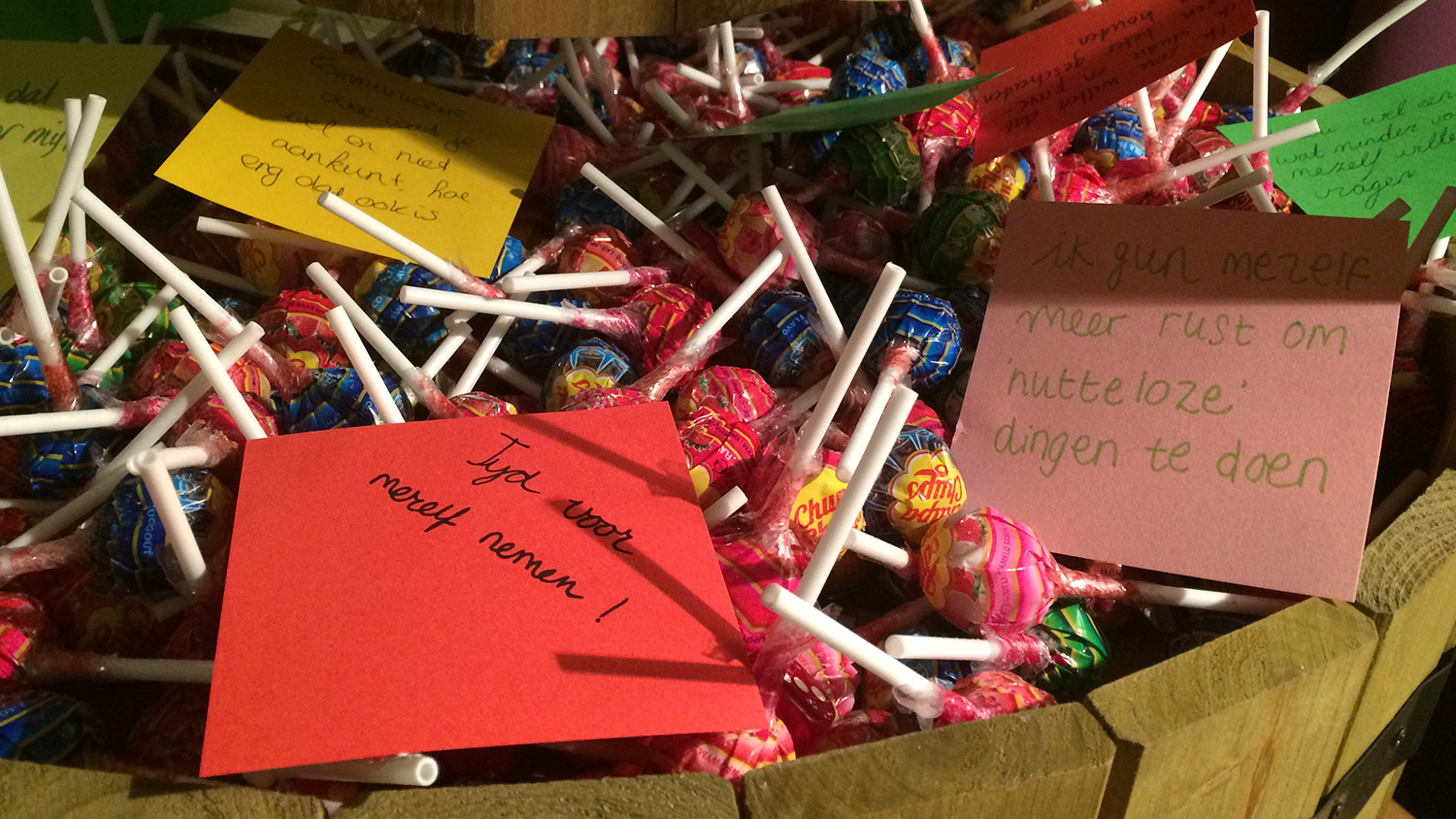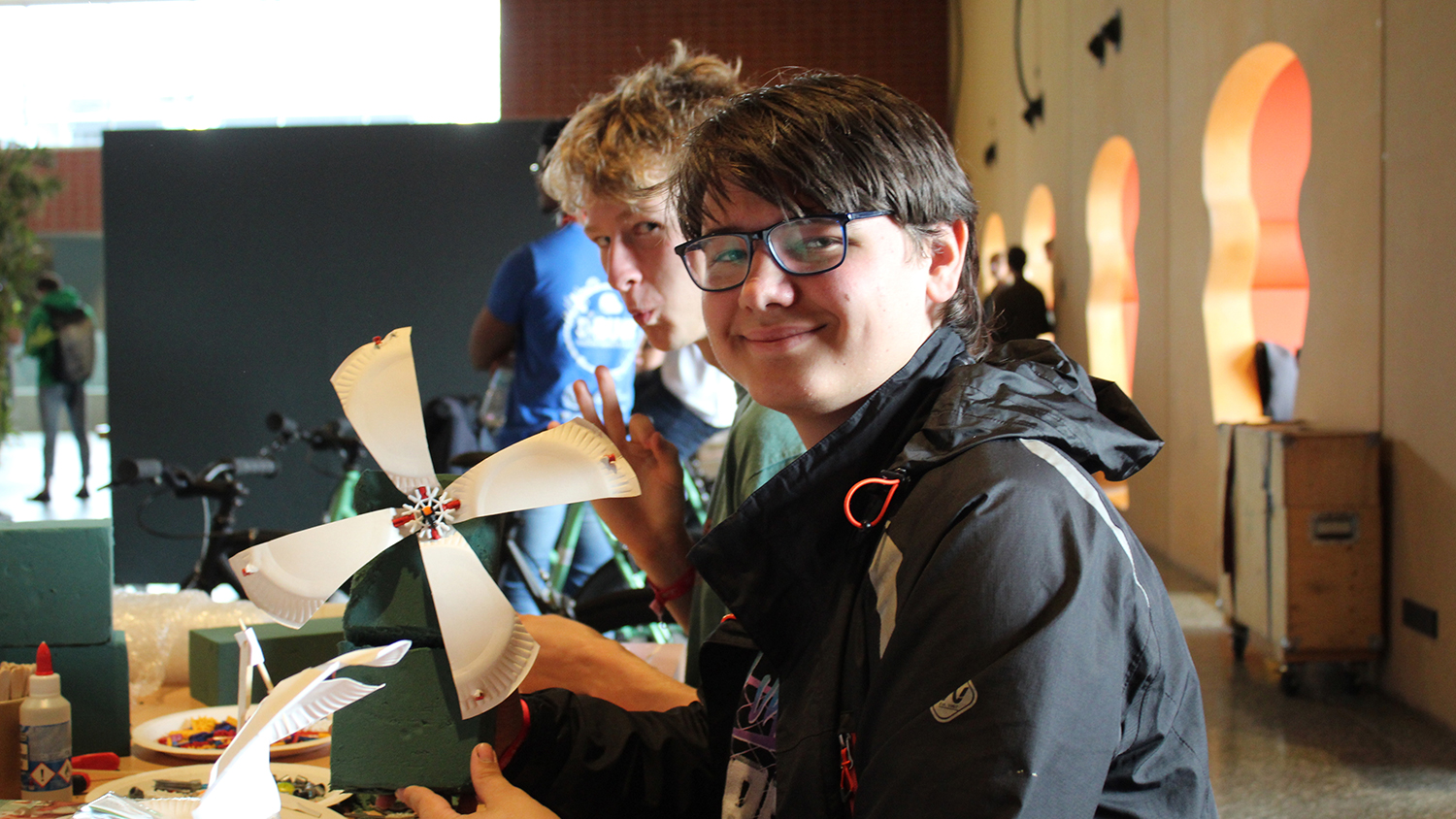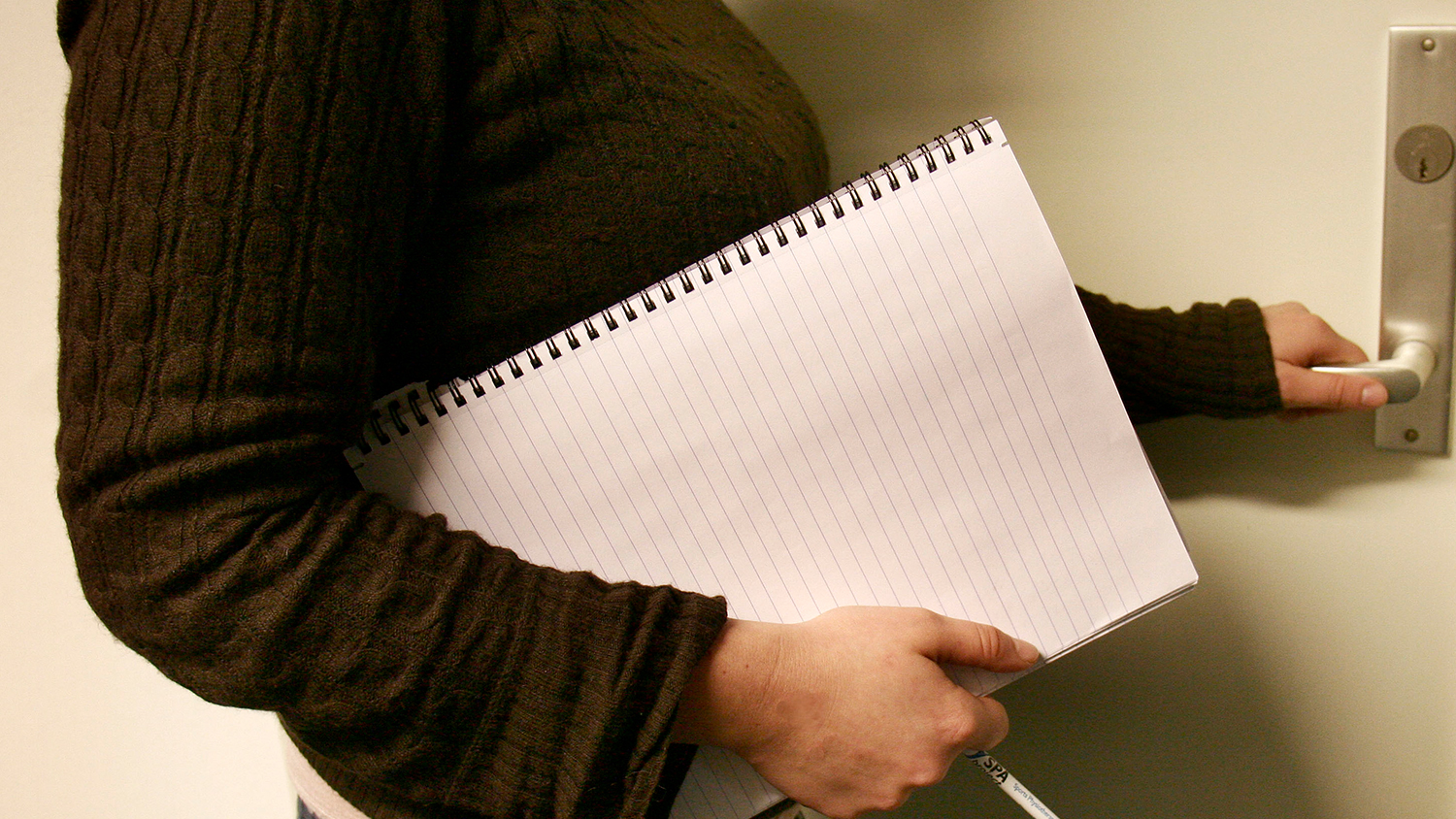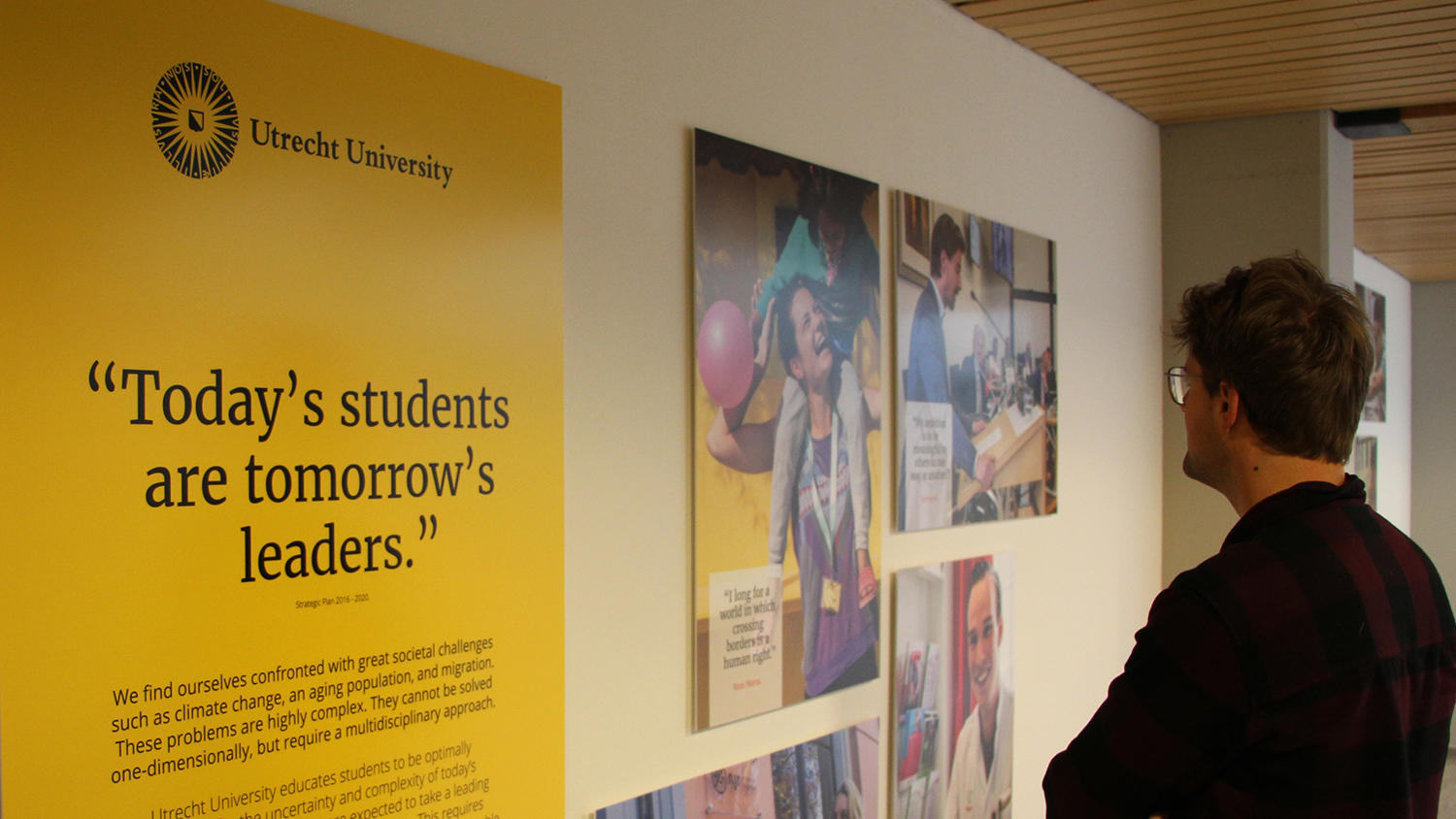Pressure to perform for students begins before their studies start

Students bring a performance-oriented culture with them from secondary school. That development leads to them wanting to do many things at the same time both in their studies and in extracurricular activities, and it makes them experience stress.
This is what the university’s Taskforce Student Wellbeing heard from different teachers and employees. In conversations with students, they say they experience a lot of competition amongst themselves. Students also put a remarkable amount of energy in building their CVs and finding future jobs.
The taskforce, which was established two years ago at the urgent request of the University Council, wanted to use the conversations to study whether the guidance of students at the UU is all right, considering there’s a sense that many students experience mental issues.

High expactations
The taskforce emphasises that it’s not the case that all UU students experience problems. Studies by the municipality, for instance, show that the great majority of students are in good mental and physical health.
But the results of the conversation study can be of importance. Among other things, it became clear that more and more students ask for help from tutors, student advisors, and psychologists. They do so when they’re insecure about obtaining enough points to pass the first year (the binding study advice), about international exchanges, choosing a topic for a thesis, or possible future job opportunities. One factor that comes into play is that the length of people’s studies has become shorter, and students are younger and younger on average by the time they graduate. On top of that, students also expect – more than before – that the university can offer support in all sorts of areas.

Three recommendations
The taskforce concludes that UU students generally receive sufficient and good guidance, but it also finds sticking points. Those led to three recommendations to the university board.
- Make clear who does what
Often, students aren’t exactly sure what kind of guidance the university offers, and when they can approach who. That leads to a risk of them ending up in the wrong place, and having to share their story multiple times. A communications advisor is currently working on a plan to improve things like this.
- Create a lower threshold for finding support and make it more accessible
Students could also help each other, for instance by increasing the number of student mentors, and by establishing buddy programmes. Student organisations may be able to play a role in this.
- Lower the pressure on tutors, student advisors, and psychologists
This can be done, for instance, by screening and referring students sooner. The first steps in this will be taken this spring with the Caring Universities programme. The project is meant to ensure that after filling out an online questionnaire, all students receive feedback about their mental wellbeing, and can be referred if necessary. The new Wellbeing Week already seems to be helping students deal with stress and the pressure to perform, according to the taskforce report.

Too many demands
The taskforce also looked into whether the UU itself perhaps contributes to the stress students experience. Of course, study programmes rightfully demand a lot of students, but regulations for resits and requirements for the binding study advice might also increase that pressure.
The taskforce does not say anything about whether the rules are (too) strict. But the UU, at least, does not have more or higher obstacles than other universities, the taskforce concludes. There’s always somewhere to go to for students who experience issues. Furthermore, it’s often possible to make exceptions if students have a fair reason.
Better to prevent
In a committee meeting of the University Council, student council members said that the observation – that students apparently enter the university already stressed – doesn’t relief the university of the duty of acting. For that reason, rector Kummeling was asked whether he thinks the university might be able to do more.
The rector says a university without people feeling pressure to perform is an illusion. “But,” he says, “We could make it clearer in our education that we’re not competing with each other. Everyone has different qualities, and you have to appreciate all of them. In that sense, I see parallels with research. We’re also telling researchers that we can really achieve greatness when we work together.”

Chairman of the student members of the council Jesse Wijlhuizen recognises the observation of the taskforce that many students are already stressed when they start at university, and take on too many responsibilities. He thinks it’s important that the university tries to find out in which moments students really experience stress during their studies. Wijlhuizen thinks the Caring Universities project could offer insight in this. “With that kind of knowledge, you can have preventative measures. Otherwise, you just keep treating the consequences of stress. It’s better to prevent than to heal.”
High on the agenda
In response to the memo, the university board concludes that at this moment, no extra investments are necessary. The decision had previously been made to spend an additional two hundred thousand euros a year for the next five years, to be spent on an additional student psychologist, policy officer, and communications advisor, among other things. In the context of the quality agreements, the faculties themselves had already decided to spend an additional 2.7 million euros on student wellbeing and guidance. The role of the taskforce will now become smaller, and aimed more at monitoring the policy.
In the meeting, rector Kummeling emphasised that the topic should remain high on the agenda, and that students can always make suggestions for improvement. The student council members already voiced a number of suggestions. It might be good, for instance, to consider the role tutors have. Shouldn’t it become mandatory for all students and teachers to have two meetings with tutors twice in the first year? They also suggest that students should receive information about guidance from the UU within the first one hundred days of their studies. They should also be urged to register with a GP. It’s a known fact that many students neglect to do so.